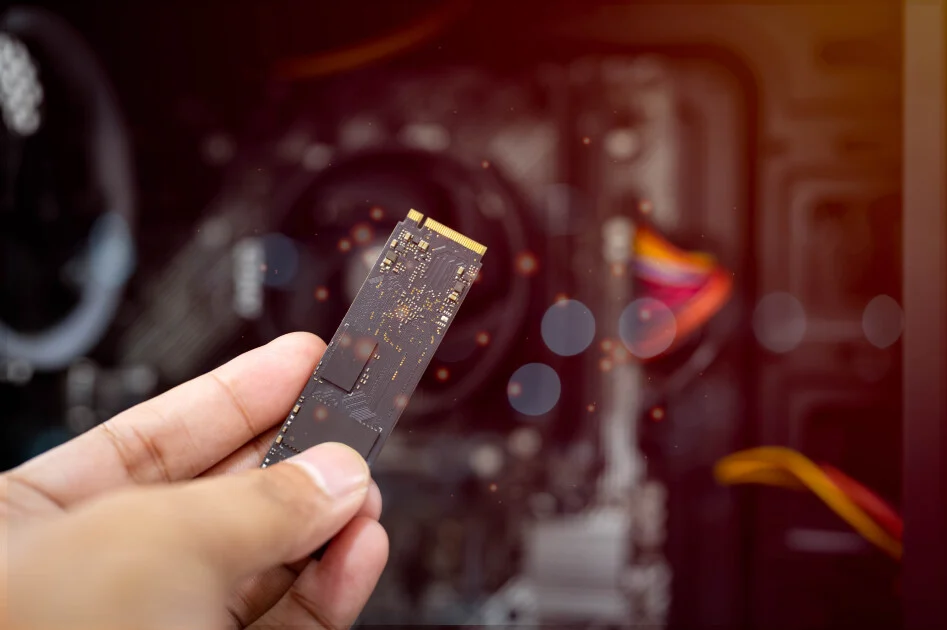Don’t miss out on our latest stories. Add PCMag as a preferred source on Google.
The AI demand isn’t just affecting pricing for RAM, but also risks hitting the costs for SSD storage.
The CEO of Phison, a major provider of controllers for SSD drives, told investors last week to brace for price increases for NAND flash, which is used in PC storage.
“Recently all the NAND companies start to increase their selling price almost up to 50, 75%,” said Phison CEO Khein Seng Pua in an earnings call. “So the demand is turned to very strong in Q4.”
“We believe the cloud AI, the edge AI, is going to need more storage and hard drive displacement is happening. So NAND will be supply tight for many, many years,” he added.
Later in the call, Phison’s CEO also credited the surge to both the AI sector and “very strong” demand for PCs and mobile devices. “Just suddenly the AI systems need more storage for AI inference,” he noted.
Pua said it was hard to predict NAND pricing for next year. But he doesn’t expect enterprise cloud service providers to reduce their demand for storage, citing the need to keep up with the AI demand. “They want to have more revenue, more income. They need to have more storage,” he said. As a result, he’s urging NAND suppliers to refrain from raising pricing too high.
(Photo by Jakub Porzycki/NurPhoto via Getty Images)
“We hope, we wish, we ask, we request if the NAND company is enjoying good gross margin, 50, 60%. Good. Don’t try to go to 80%. This definitely will kill a lot of industry,” he said.
Pua also laid out a scenario where if the pricing for flash memory doubles, then hardware manufacturers in the smartphone and PC industry could drastically cut the storage capacity in their products by as much as 50%. “For example, a smartphone using 256 gigabyte, price go 2x, they cut down to 128 gigabyte. Then the demand suddenly drop, then the price going down,” he said.
Phison’s CEO made the comment after flash memory provider SanDisk’s CEO also reported that “demand for our NAND products continued to outpace our supply, a dynamic we expect to persist through the end of calendar year 2026 and beyond.”
The good news is that pricing for consumer SSDs seems to have only slightly increased in recent weeks. For example, the prices for Samsung’s NVMe storage seems to have gone up by around $10, according to PCPartPicker.com
(PCPartPicker.com)
Still, PC builders should consider buying storage now, or during the upcoming Black Friday sales, rather than waiting. AI demand has also caused pricing for DDR5 and DDR4 RAM to skyrocket in recent months.
Meanwhile, Phison’s CEO said the company has already secured NAND memory units from its suppliers for next year, but isn’t sure if it’ll be enough.
Get Our Best Stories!
Your Daily Dose of Our Top Tech News
Sign up for our What’s New Now newsletter to receive the latest news, best new products, and expert advice from the editors of PCMag.
Sign up for our What’s New Now newsletter to receive the latest news, best new products, and expert advice from the editors of PCMag.
By clicking Sign Me Up, you confirm you are 16+ and agree to our Terms of Use and Privacy Policy.
Thanks for signing up!
Your subscription has been confirmed. Keep an eye on your inbox!
About Our Expert
Michael Kan
Senior Reporter
Experience
I’ve been a journalist for over 15 years. I got my start as a schools and cities reporter in Kansas City and joined PCMag in 2017, where I cover satellite internet services, cybersecurity, PC hardware, and more. I’m currently based in San Francisco, but previously spent over five years in China, covering the country’s technology sector.
Since 2020, I’ve covered the launch and explosive growth of SpaceX’s Starlink satellite internet service, writing 600+ stories on availability and feature launches, but also the regulatory battles over the expansion of satellite constellations, fights with rival providers like AST SpaceMobile and Amazon, and the effort to expand into satellite-based mobile service. I’ve combed through FCC filings for the latest news and driven to remote corners of California to test Starlink’s cellular service.
I also cover cyber threats, from ransomware gangs to the emergence of AI-based malware. Earlier this year, the FTC forced Avast to pay consumers $16.5 million for secretly harvesting and selling their personal information to third-party clients, as revealed in my joint investigation with Motherboard.
I also cover the PC graphics card market. Pandemic-era shortages led me to camp out in front of a Best Buy to get an RTX 3000. I’m now following how President Trump’s tariffs will affect the industry. I’m always eager to learn more, so please jump in the comments with feedback and send me tips.
Read Full Bio

